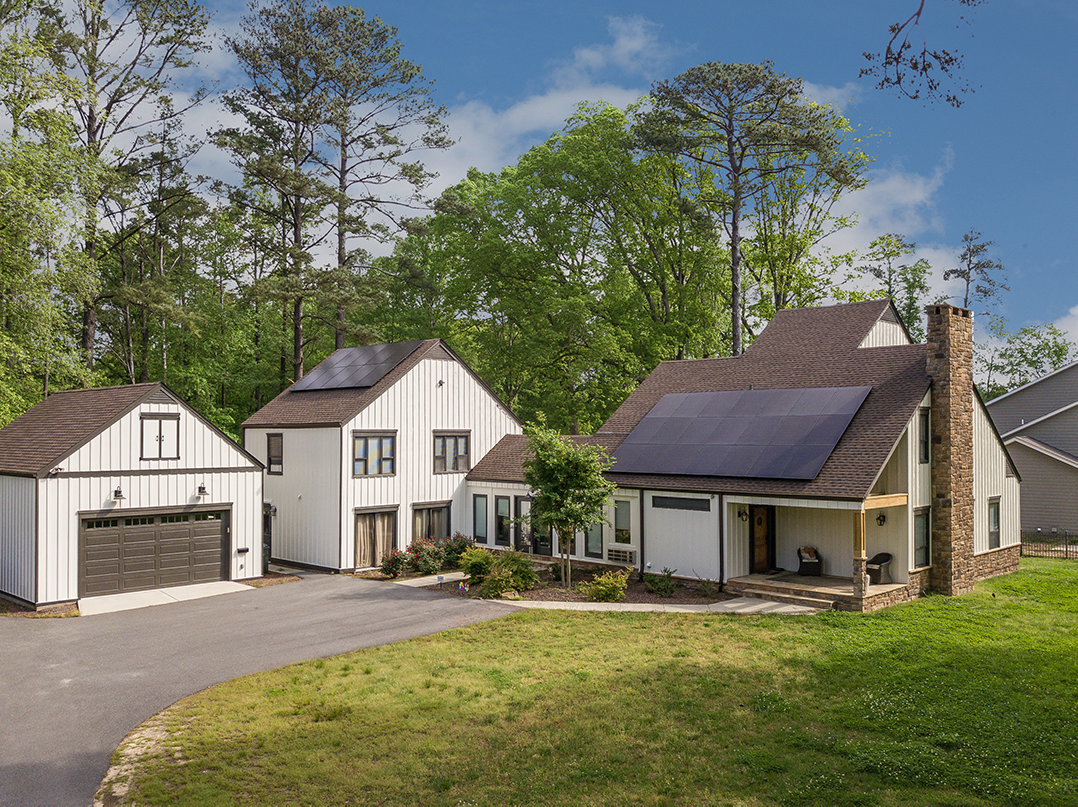Seeing the Light: The Fight Against HOA Solar Restrictions
Homeowner associations (HOAs) have a long history of restricting residents from installing solar panels because of how they look from the public areas. In the United States, where more than half of the nation’s neighborhoods are governed by HOA Covenants, Conditions, and Restrictions (CC&Rs), these contracts pose one of the most prevalent obstacles faced by prospective solar homeowners. NCSEA and other solar advocate organizations have since taken up the fight to push back on these solar restrictions by collecting stories from solar customers, supporting bills that seek to remove HOA installation restrictions, and empowering homeowners to negotiate with their HOAs. While there are many success stories, we still have a long way to go before rooftop solar is accessible to all.
To understand the current issue, let’s take a dive into its legislative history. North Carolina’s very first solar access law was drafted and passed in 2007. SB670 – applicable to only new HOA contracts – outlawed CC&Rs from preventing “the reasonable use of a solar collector for a detached single-family residence,” but it didn’t prohibit HOAs from regulating where you can place your solar panels. In other words, while HOAs cannot flat out deny your appeal to install solar, they can hinder you from installing panels on a public-facing roof with maximum sun exposure. A decade later, the issue made it back onto the Congress floor in 2019. With the help of our members, NCSEA drafted legislative language for HB750 to help create more freedom for the placement of residential solar installations. If passed, the house bill would have banned HOAs from repositioning panels that would result in a reduction in operating efficiency by more than 10%. Unfortunately, the bill was dropped after its first hearing with the House.
Solar access law development in North Carolina remained stagnant until this year’s Legislative Session. The same bill, now designated HB842, is making its way up the 2021 session. As of June of 2021, it has passed its first Senate reading and is making notable progress compared to its predecessor.
Solar access on the ground is one step ahead despite the slow legislative process. For years, Yes Solar Solutions, a longtime NCSEA member, has been helping homeowners negotiate with HOAs that have initially restricted access to rooftop solar installation. The company not only helps homeowners install solar collectors, they also facilitate back-end negotiations with the HOAs. “We help prepare the [...] spec sheets for the products proposed for the installation,” shares Kathy Miller, the CEO of Yes Solar Solutions. “[We document] why the array is placed as it is, how much energy is saved, [and provide] a rendering of the array on the roof and any licensing, etc.” After working with the company, one of its clients in Cary finally won an appeal with his HOA to install his solar unit on a public-facing roof after being turned down twice. It was a collaborative effort: The customer petitioned for the installation by collecting signatures from his neighbors who lived in a house within sight of his; Yes Solar Solutions documented the inefficacy of installing the panel on the north-facing roof, estimated a 4% increase in the home resale value, and showed pictures of how beautiful the black units would look on his dark gray roof.
Success stories like this one provides hope and paves the way for more homeowners to access solar power and partake in North Carolina’s movement toward clean energy. Not only does rooftop solar lower energy bills through energy rebates, tax credits, and net metering, it also raises a home's resale value, increases energy security, stabilizes the grid, creates jobs, and reduces our carbon footprint. It’s an energy system that eventually pays for itself and a solution that benefits all. Solar technology is constantly evolving, and solar adoption is more affordable, efficient, and elegant than ever before. “Many of the HOA restrictions were written when panels were all cobalt blue with white backing,” explains Miller. “A solar advocate[‘s] presence on the board can help sway some of that thinking, especially now with all black solar panels that are much more aesthetically pleasing.” Educating our policy makers and HOAs on the benefits and breakthroughs in solar is crucial as we strive to make clean energy a reality for North Carolinians.
If you are interested in solar installation, be sure to check out NCSEA’s Consumer Guide to Solar Electricity for the North Carolina Homeowner. To learn more about this issue, look out for our HOA infographic launching next month and join us at the next Making Energy Work Webinar (Wednesday, July 21 at 2:00pm) where we will discuss “Challenges and Opportunities in Rooftop Solar Across the Carolinas” and the work that NCSEA and other clean energy advocates are undertaking to address them.
This post was written by NCSEA’s Communications Fellow Stacy Chen.



[…] is to simply delete the exception that allows HOAs to prohibit public-facing solar. It would also clarify the restrictions on location and screening of solar installations that HOAs are allowed to […]